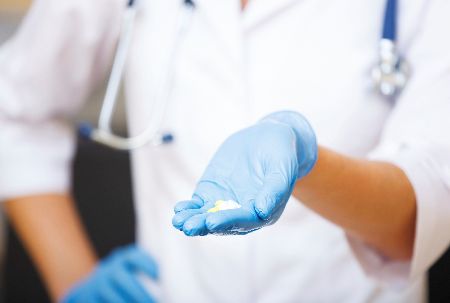A scientist at the University of Liverpool has launched a new report with the British Pharmacological Society calling for an increase in the number of clinical pharmacologists across the four UK nations.
Professor Munir Pirmohamed, from the University’s Institute of Translational Medicine and Chair in Pharmacogenetics, led the report, which highlighted that this medical specialism is the only one focusing on the safe, effective and economic use of medicines and is well placed to help the NHS surmount the biggest financial challenge since its creation.
Labour peer Lord Robert Winston hosted a reception to launch the report; he said: “The NHS faces increasing demand for services and a decreasing budget. Evidence shows that clinical pharmacology is going to be vital if we are to meet this challenge, but the speciality has perhaps been a little too shy in coming forward.”
Safely and effectively
Clinical pharmacologists ensure existing medicines are used safely, effectively and efficiently, making room for the pioneering medicines of tomorrow, which clinical pharmacologists play a crucial role in developing.
Yet in 2012, there were only 77 Clinical Pharmacology and Therapeutics (CPT) consultants in the UK, significantly fewer than the 440 recommended by the Royal College of Physicians.
Professor Pirmohamed said: “Clinical pharmacologists already improve patients’ lives by ensuring that the currently available medicines are used more safely and effectively.
“As the population grows older, and polypharmacy becomes more common, the skills of clinical pharmacologists are going to be vital to work in partnership with the whole healthcare economy in the NHS to maximise patient benefits.
“Clinical Pharmacologists will also be important in wealth creation as their expertise will help in developing and testing the medicines of the future.”
Saving money
The report also shows that clinical pharmacologists save money and improve patient outcomes by bringing innovation to the NHS through experimental medicine and by designing early phase clinical trials.
They work with industry to provide tomorrow’s medicines and grow the UK’s economy in a variety of ways including leading clinical toxicology services and the National Poisons Information Service, as well as teaching new doctors to prescribe medicines safely and effectively.
Professor Humphrey Rang, President of the British Pharmacological Society, said: “Our aim is to emphasise the need for the NHS to nurture and grow the specialty to meet the increasing demand for services we expect to see in the future.”
